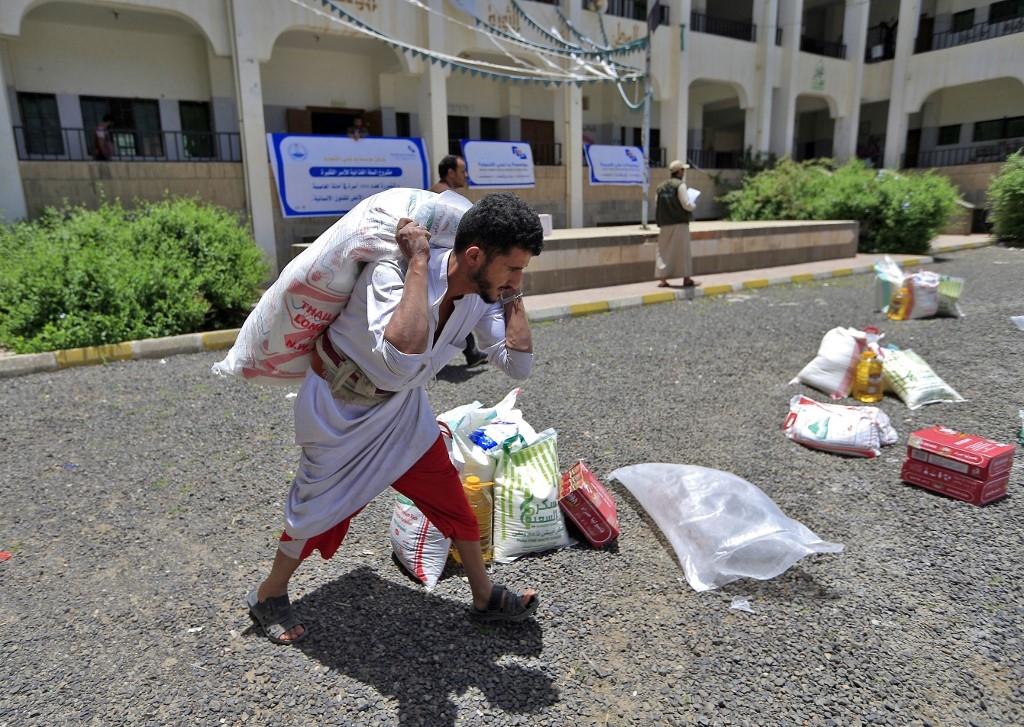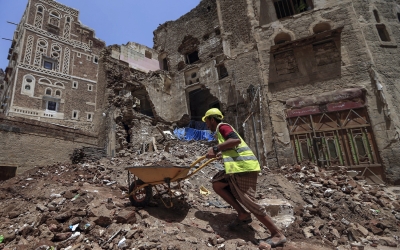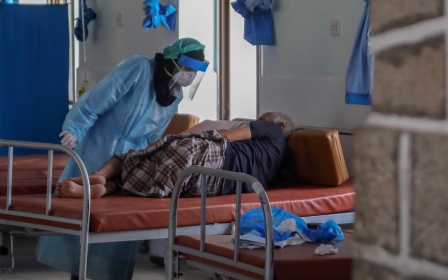Hunger eclipses fear of Covid-19 in war-ravaged Yemen

Families across Yemen are sending their children out to work and beg as households are unable to afford food and drinking water amid rising food, water and petrol prices, an international charity has said.
Despite the novel coronavirus spreading mostly undetected across the poverty-hit country, data collected from more than 150 households in three provinces across southern Yemen found that respondents were more worried about going hungry than contracting the virus.
The International Rescue Committee (IRC) found that nearly two-thirds of respondents reported being unable to afford food and drinking water.
"The nightmare Yemenis are living through continues to get worse with each passing day," said Tamuna Sabadze, IRC's Yemen country director.
"With Covid-19 spreading unchecked, dwindling humanitarian funding, and increasing fighting and air strikes, Yemen is experiencing a triple emergency. This survey brings to life the terrible economic impacts Covid-19 is having on the lives of the world's most vulnerable."
New MEE newsletter: Jerusalem Dispatch
Sign up to get the latest insights and analysis on Israel-Palestine, alongside Turkey Unpacked and other MEE newsletters
Food insecurity is a major concern in Yemen, where a resurgence in fighting between internal and external forces, coupled with decreased humanitarian funding and access, has left millions at risk.
If humanitarian assistance to the country does not increase, the number of people facing acute food insecurity this year will rise to an estimated 3.2 million people – 40 percent of the population.
Almost half of all Yemeni children under five will be malnourished by the end of 2020, a rise of 20 percent.
Food rations for north Yemen have already been cut in half since April and an additional five million people will lose access to food assistance in November without more funding, IRC said.
According to the World Food Programme, prices for sugar and vegetable oil have jumped by more than 25 percent in the past year.
The WFP said that Yemen needs $737m by the end of the year in order to help with food security for millions of Yemenis.
"In order to feed their families, respondents indicated they have had to take on debts which they can’t afford to repay, reduce the amount of food they are consuming, sell off assets like land or livestock, and some have even had to send their children to work or to beg," Sabadze said.
Although to date fewer than 1,900 Covid-19 cases have been officially recorded, the true figure is likely to be considerably higher due to underreporting and a lack of testing.
Last month, the US-based charity MedGlobal reported that nearly 100 health care professionals in the country had died from the virus.
Middle East Eye delivers independent and unrivalled coverage and analysis of the Middle East, North Africa and beyond. To learn more about republishing this content and the associated fees, please fill out this form. More about MEE can be found here.





